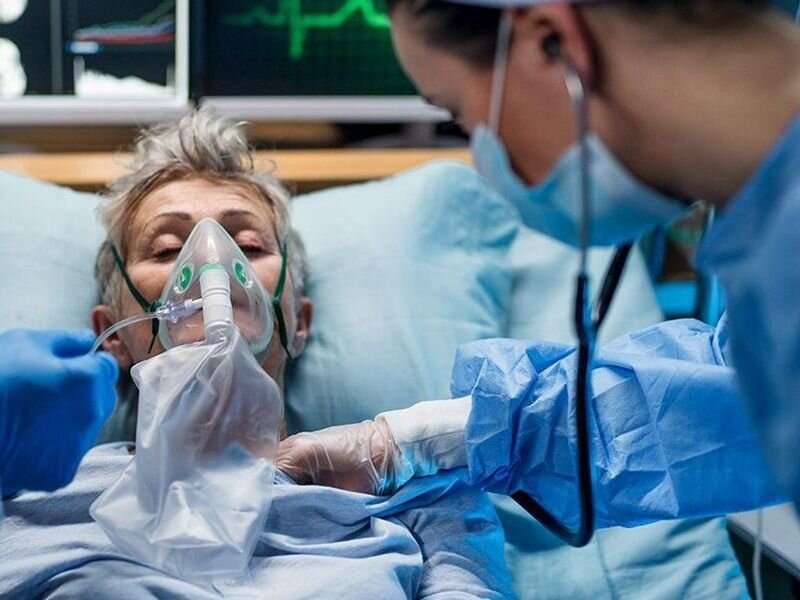
Therapeutic-dose anticoagulation with heparin does not improve outcomes for critically ill patients with severe COVID-19, but it is beneficial for patients who are not critically ill, according to two studies published online Aug. 4 in the New England Journal of Medicine.
Ewan C. Goligher, M.D., Ph.D., from the University of Toronto, and colleagues randomly assigned critically ill patients with severe COVID-19 to either therapeutic-dose anticoagulation with heparin or pharmacologic thromboprophylaxis concordant with usual care. When the prespecified criterion for futility was met for therapeutic-dose anticoagulation, the trial was stopped. Data on the primary outcome were available for 534 patients assigned to therapeutic-dose anticoagulation and 564 assigned to usual-care thromboprophylaxis. The researchers found that the median value for organ support-free days was one and four among patients assigned to therapeutic-dose anticoagulation and usual-care thromboprophylaxis, respectively (adjusted proportional odds ratio, 0.83; 95 percent credible interval, 0.67 to 1.03; posterior probability of futility, 99.9 percent).
Patrick R. Lawler, M.D., M.P.H., from the Peter Munk Cardiac Centre at the University Health Network in Toronto, and colleagues randomly assigned patients hospitalized with COVID-19 who were not critically ill to either therapeutic-dose anticoagulation or usual-care pharmacologic thromboprophylaxis. When the prespecified criteria for the superiority of therapeutic-dose anticoagulation were met, the trial was stopped. The researchers found that among 2,219 patients in the final analysis, there was a 98.6 percent probability that therapeutic-dose anticoagulation increased organ support-free days compared with usual-care thromboprophylaxis (adjusted odds ratio, 1.27).
“Initiating therapeutic anticoagulation is beneficial for moderately ill patients and once patients develop severe COVID-19, it may be too late for anticoagulation with heparin to alter the consequences of this disease,” a coauthor from the Lawler study said in a statement.
Source: Read Full Article
